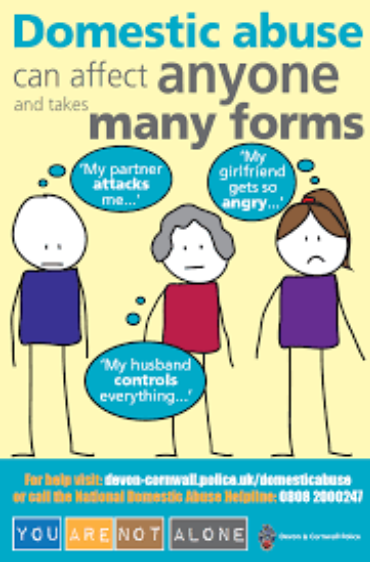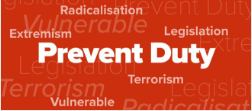Safeguarding
Axminster Community Primary Academy is totally committed to ensuring the welfare and safety of all our children in school. We believe that pupils have a right to learn in a supportive, caring and safe environment which includes the right to protection from all types of abuse; where staff are vigilant for signs of any pupil in distress and are confident about applying the/our safeguarding processes to avert and alleviate any such problems.
Safeguarding and key people you can talk to:
Keeping our children safe is our number one priority. We have many elements to our safeguarding support and procedures. You can find more information about our approach to safeguarding as a Trust at: https://www.firstfederation.org/safeguarding-2/
If you have any concerns about the safety of your child, yourself, or another child, please contact a member of staff listed below.
Safeguarding Team
The Designated Safeguarding Lead Member of Staff (DSL) is Claire Hulbert

Nominated Deputy Lead Member of Staff: Emily Reeve

Nominated Deputy Lead Member of Staff: Sue Ellsworth

Nominated Deputy Lead Member of Staff: Jane Barribal

Safeguarding is about ensuring that everyone is safe from harm – safe from bullying, safe from people who could abuse, safe from discrimination or harassment – and that we all feel safe in our environment.
If you are ever concerned about the safety or wellbeing of someone at our school please talk to one of the school’s Designated Safeguarding Lead s (DSLs).
Safeguarding Statement
This school is committed to safeguarding and promoting the welfare of children and expects all staff and volunteers to share this commitment. This means that we have a Child Protection Policy and procedures in place.
Parents and carers are welcome to read the Policy on request. Sometimes we may need to share information and work in partnership with other agencies when there are concerns about a child’s welfare. We will ensure that our concerns about our pupils are discussed with his/her parents/carers first unless we have reason to believe that such a move would be contrary to the child’s welfare. If a member of staff is concerned about a child’s welfare, they will record their concern, and any observations or conversation heard, and report to one of the DSLs as soon as possible the same day.
If a member of staff has concerns which relate to the actions or behaviour of another member of staff (which could suggest that s/he is unsuitable to work with children) then this will be reported to one of the DSLs in confidence, who will refer the matter to the Head of School (or the Executive Headteacher if the concern relates to the Head of School) who will consider what action to take.
Downloads & Useful Links
Safeguarding LeafletSafeguarding Policy 2024
Operation Encompass

What is Operation Encompass?
Operation Encompass is a unique Police and Education early intervention safeguarding partnership which supports children and young people exposed to domestic abuse. It was launched on the 1st October 2015 and it is a process by which Key Adults (Designated Safeguarding Leads) in schools, academies, nurseries are informed, in strict confidence, that a child/young person may have been affected by domestic abuse within 24 hours of the event taking place to enable support to be given on the needs and wishes of the child.
How will it help?
The sharing of information between the Police and schools will allow early intervention support by Key Adults in schools. The aim of this support is to assist any child affected by domestic abuse to remain in school, so that they continue learning in a safe and secure environment.
What will we do?
At Axminster Community Primary Academy, we will ensure that we will:
-
participate fully in Operation Encompass;
-
identify Key Adults;
-
complete the Log Sheet; and
-
complete the summary sheet for statistical and auditing purposes.
We follow-up on any actions as directed by Operation Encompass and check on the welfare of pupils in school.
Axminster Community Primary Academy is proud to be part of the Operation Encompass intervention. For more information, clicks on the link below:
Operation EncompassOperation Encompass Information Booklet
Domestic Violence
There is a lot of support in our local area and nationally for anyone who is suffering from Domestic Abuse. Please use the links below if you need help.

Domestic abuse and COVID-19 | Safelives
FearFree - Local Support for Domestic Abuse (Splitz)
What is Early Help?
Early help means taking action to support a child, young person or their family early in the life of a problem, as soon as it emerges. It can be required at any stage in a child's life from pre-birth to adulthood, and applies to any problem or need that the family cannot deal with or meet on their own.
Please see below website for further information regarding early intervention:
https://learning.nspcc.org.uk/safeguarding-child-protection/early-help-early-intervention/
Devon Early Help for parents:
Early Help - Devon Safeguarding Children Partnership (devonscp.org.uk)
If you feel you could benefit from some Early Help support then contact the school office or Mrs Barribal - today!
E-Safety
At Axminster Community Primary Academy the safety of our children is of upmost importance. This includes keeping them safe when using electronic equipment and more specifically when entering the online world. E-Safety encompasses internet technologies and also electronic communications via mobile phones, games consoles and wireless technology. By educating our children in e-safety we aim to highlight the need for children and young people to think practically about the benefits, risks and responsibilities of using information technology.
We operate an open-door policy for reporting issues relating to e-safety and very much welcome parents and carers to come into school to speak with a member of staff about any perceived problems.
Parents and Carers can visit the Childnet website for support and advice for safe use of the internet at home
https://www.childnet.com/parents-and-carers/Children can visit the Kidsmart website to learn how to use the internet safely at home
https://www.childnet.com/resources/looking-for-kidsmart/
Some additional help for parents and carers
advice-for-parents-on-cyberbullying.pdfsnapchat.pdffacebook-guide.pdfwhatsapp-guide.pdfsquid-game-guide.pdf
parent-controls-android-apps.pdfparent-controls-iphone-apps.pdftik-tok-guide.pdffriendly-five-updated.pdf
cco-talking-to-your-child-about-online-sexual-harassment-poster-for-parents-2021.pdfparental-controls-booklet-2021.pdf
Other important sites to support our children and families are linked below. These include important information on how to keep your child safe online:
https://saferinternet.org.uk/https://anti-bullyingalliance.org.uk/https://www.childline.org.uk/
NSPCC
Prevent Duty - Preventing Radicalisation in school
Building resilience in our young people and the promotion of fundamental British values is at the heart of preventing radicalisation. We do this by providing a safe place in which children can discuss issues, and we aim to give them the knowledge and confidence to challenge extremist beliefs and ideologies.
Our new prevent duty, is carried out under the Counter-Terrorism and Security Act 2015, which legally requires us to take steps to prevent pupils from being drawn into terrorism. We take this duty seriously and carry out the four main actions responsibly, namely: risk assessment, working in partnership, staff training and IT policies. If we assess a child as at risk, we will refer to the Channel Programme, which focuses on providing support at an early stage to people who are identified as being vulnerable to being drawn into terrorism.
In terms of training, staff have received training to familiarise them with the Prevent Duty. In terms of internet safety, we ensure suitable filters are in place to keep children away from extremist materials, in keeping with Devon guidelines.
We recognise that we play a vital role in keeping children safe from harm, including from the risks of extremism and radicalisation, and in promoting the welfare of children in our care.
What we do if there is a concern
If we have a concern about a particular pupil we will follow the school’s normal safeguarding procedures, including discussing with the school’s designated safeguarding lead, and where deemed necessary, with children’s social care. In Prevent priority areas, the local authority will have a Prevent lead who can also provide support.
We may also contact the local police force or dial 101 (the non-emergency number). They can talk to us in confidence about concerns and help us gain access to support and advice.
The Department for Education has dedicated a telephone helpline (020 7340 7264) to enable staff and governors to raise concerns relating to extremism directly. Concerns can also be raised by email to counter.extremism@education.gsi.gov.uk. Please note that the helpline is not intended for use in emergency situations, such as a child being at immediate risk of harm or a security incident In an emergency situation we will follow the recommended emergency procedures.
Pantosaurus
Please use the links below to access the NSPCC websites for information from Pantosaurus, child exploitation, radicalisation to advice on keeping children safe online in Think U Know.
Discussing private parts with your children
Pantosaurus helps children understand that privates are private, even online. It works for very young children but also as a basis for discussion with older pupils. It's also very funny!
Useful NSPCC links
NSPCC | The UK children's charity | NSPCC
Let's talk PANTS with Pantosaurus! | NSPCC
CEOP Education (thinkuknow.co.uk)
Protecting children from radicalisation | NSPCC
Child Sexual Exploitation & How to Keep Your Child Safe | NSPCC
NSPCC: Support for parents
Support & advice for parents | NSPCC
Child Sexual Exploitation
Child Sexual Exploitation, or CSE, is a form of sexual abuse which sees children/young people being manipulated or coerced into sexual activity for receiving ‘something’ such as; gifts, money, food, attention, somewhere to stay etc.
Technology is very often used to groom victims. This may occur through social networking sites and mobile phones with internet access.
CSE has gained a large amount of media attention over the last year as lots of services involved with children and young people have noticed a big rise in cases involving CSE.
Charities such as NSPCC and Barnardos have been campaigning to raise the profile of this form of child abuse. Information regarding CSE can be found here on their websites below:
Prevent Strategy
As part of Colyton’s commitment to safeguarding and child protection we fully support the government’s Prevent Strategy, and take guidance from Teaching Approaches to help build resilience to extremism.
What is the Prevent Strategy?
The Prevent strategy is a government strategy designed to stop people becoming terrorists or supporting terrorism. It:
-
responds to the ideological challenge we face from terrorism and aspects of extremism, and the threat we face from those who promote these views
-
provides practical help to prevent people from being drawn into terrorism and ensure they are given appropriate advice and support
-
works with a wide range of sectors (including education, criminal justice, faith, charities, online and health)

County Lines
County lines is when criminals from major cities such as Liverpool, Manchester, London and Birmingham expand their drug networks to other areas of the country. This activity brings violence, exploitation and abuse to rural communities. County line networks are having a massive impact on rural counties. Our school staff have all been trained to look for the signs of this in our community.
County lines in Devon - What you should know and how to report it (devonscp.org.uk)

Supporting Trans Children and Young People
A guide to supporting Trans Children and Young People
Are you concerned about a child?
If you have serious concerns about a child or young person, or if you need help parenting your child you can call 0345 155 1071 or email mashsecure@devon.gcsx.gov.uk
Out of hours please call 0845 6000 388. If it is an emergency dial 999.
Further Signposting:
Action for Children: Parenting advice, free text and online help service, local centres info
Parenting support | Action For Children
Childline: Support for children
Young Minds: Mental health support for children, young people and parents
YoungMinds | Mental Health Charity For Children And Young People | YoungMinds
Safer internet centre: Support for parents
Parents and Carers - UK Safer Internet Centre
CEOP: Internet safety For parents and children
